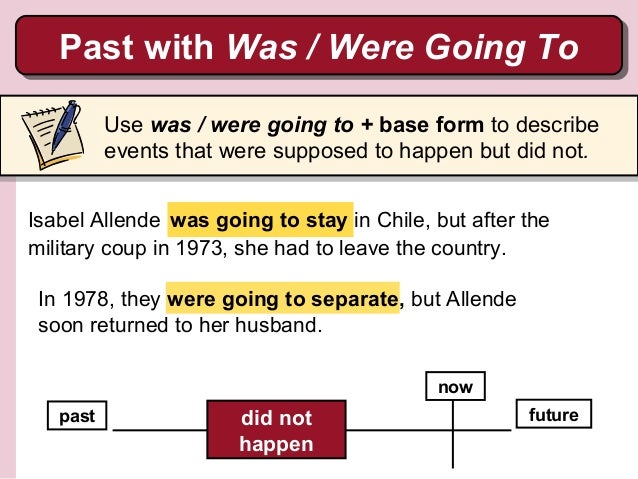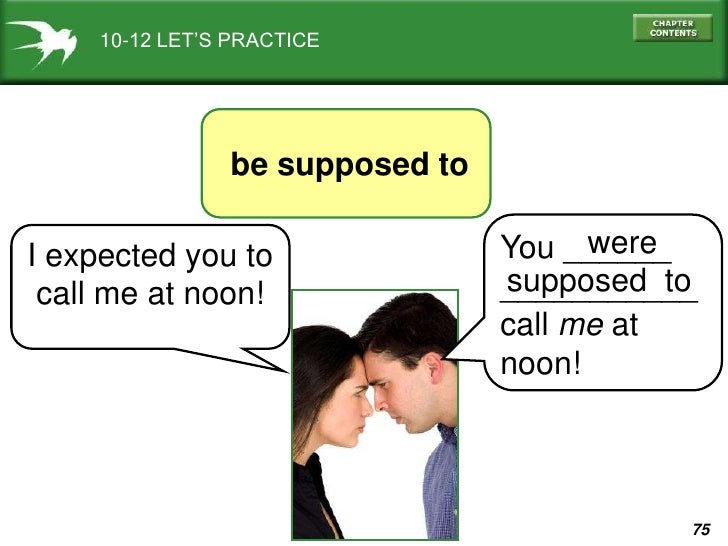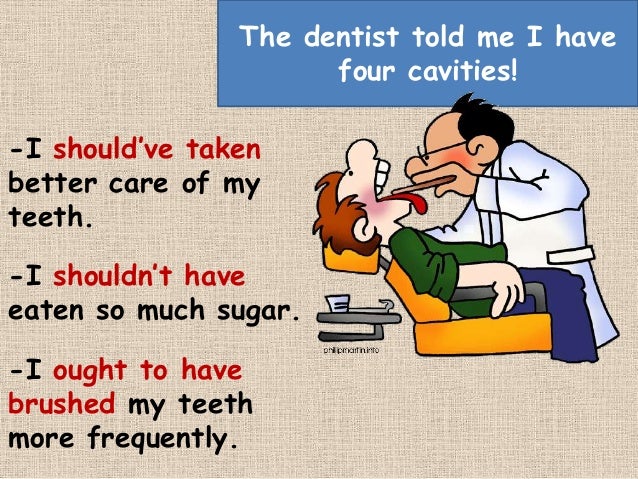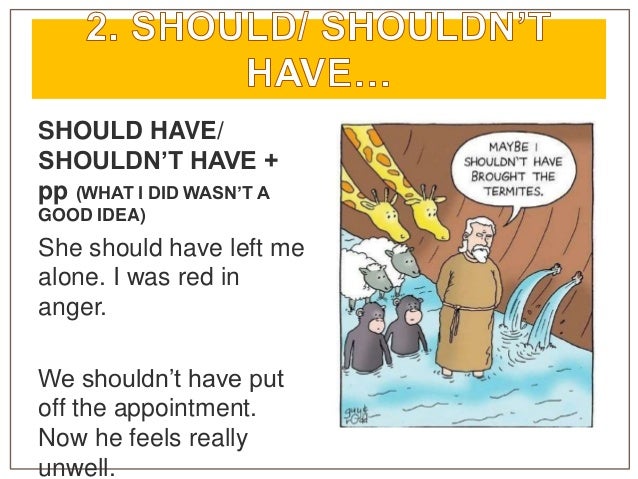was/were going to and was/were supposed to
Usaremos was/were going to para hablar sobre planes que hicimos en el pasado y no sucedieron o no sucederán en el futuro.
- We are going to visit the Homers later that year, but we didn't go for some reason.
- (Nosotros planeábamos visitar a los Homer pero no lo hicimos)
- We were going to spend the weekend in Paris, but there was no free rooms.
- (íbamos a pasar el fin de semana en París, pero no vamos a ir allí).

- Ana was supposed to book the cottage months ago, but she forgot.
- (Acordamos que Ana reservaría la casa de campo, pero no lo hizo)
- I was supposed to call you back, wasn't I? Sorry, Sam, I was out all day.
- (Sam esperaba que su novia le devolviese la llamada, pero no lo hizo
Example: A: Did you take out the trash?
B: I was going to, but then the phone rang. (ring)
1. A: Is Dave coming to our party?
B: He ______________________, but he _______________________ a babysitter for his kids. (can't find)
2. A: Are you making dinner tonight?
B: I ________________________ until the power ________________ out. (go)
3. A: Is your daughter going to college?
B: She ______________________, but she ___________________ to take a year off and travel first. (decide)
4. A: Is the teacher going to stay after class?
B: He _______________________, but he ___________________ out he had a meeting to go to later. (find)
5. A: Are your neighbors going to sell their house?
B: They ______________________ until the real estate market ___________________. (crash)
B: I was going to, but then the phone rang. (ring)
1. A: Is Dave coming to our party?
B: He ______________________, but he _______________________ a babysitter for his kids. (can't find)
2. A: Are you making dinner tonight?
B: I ________________________ until the power ________________ out. (go)
3. A: Is your daughter going to college?
B: She ______________________, but she ___________________ to take a year off and travel first. (decide)
4. A: Is the teacher going to stay after class?
B: He _______________________, but he ___________________ out he had a meeting to go to later. (find)
5. A: Are your neighbors going to sell their house?
B: They ______________________ until the real estate market ___________________. (crash)






